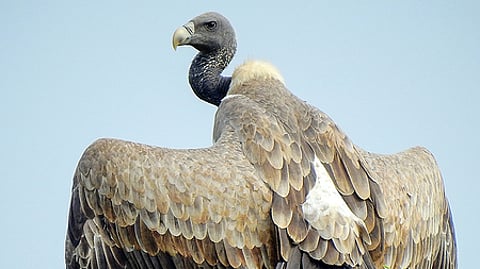

BENGALURU: The population and diet of vultures have been a matter of concern especially after it was found that diclofenac in cattle carcasses was the major reason for the decline in their population. In a first-of-its-kind study in the Indian subcontinent, researchers have found that the diet pattern of vultures varies depending upon the landscape.
Using the metabarcoding technique, a team of scientists from the National Centre for Biological Sciences (NCBS), Bombay Natural History Society, Department of Zoology, University of Cambridge, Karnataka Vulture Conservation Trust, and Hume Centre for Ecology and Wildlife Biology, examined the fecal samples of vultures to study the DNA of the species whose carcasses the vultures consumed.
The study focused on the old-world vultures found in India - White-rumped and Indian vultures and migratory species - Eurasian Griffon and Himalayan Griffon and was published in the Biological Conservation journal was released on Thursday.
Researchers found that the vulture population saw a drastic decline in the 1990s and early 2000s owing to the use of diclofenac in treating livestock. Researchers noted that even after two decades, their numbers remained low and stable, not showing any signs of recovery.
However, despite banning diclofenac, its illegal use in treating livestock persists and remains unregulated in many pockets of India. Scientists gathered fecal samples from all the vulture species at numerous nesting and roosting sites from 2018- 2022, in Karnataka, Tamil Nadu, Kerala, Madhya Pradesh, Rajasthan, and Himachal Pradesh.
The study showed that large ungulates were the main dietary component for all the vulture species across landscapes. However, diet composition, particularly the relative intake of domestic and wild ungulates, differed across landscapes, and vulture species.
Based on these results, continuing the efforts to eliminate harmful veterinary drugs remains critical to save them, said Prof Uma Ramakrishnan, senior author, NCBS and co-author of the research paper.